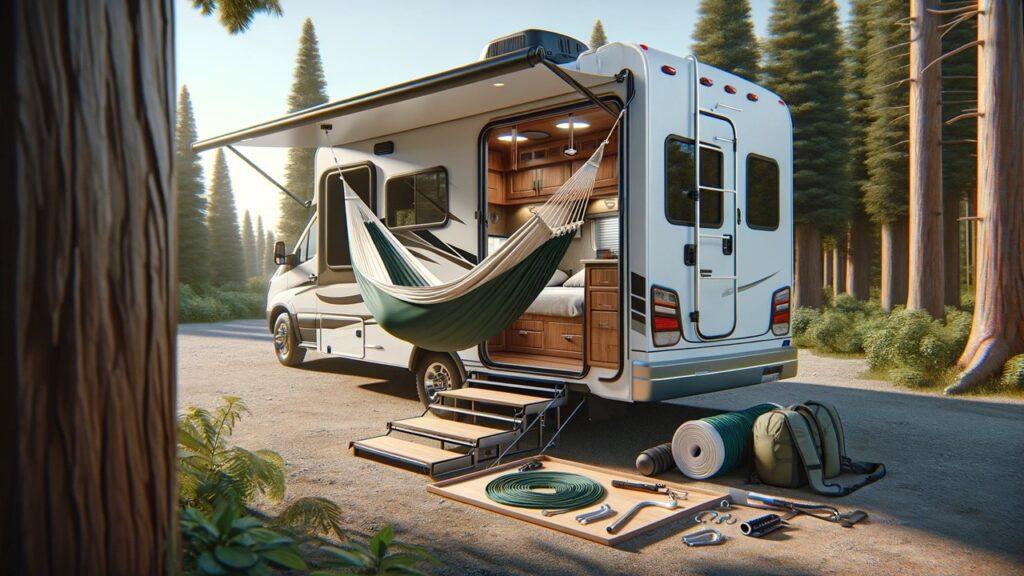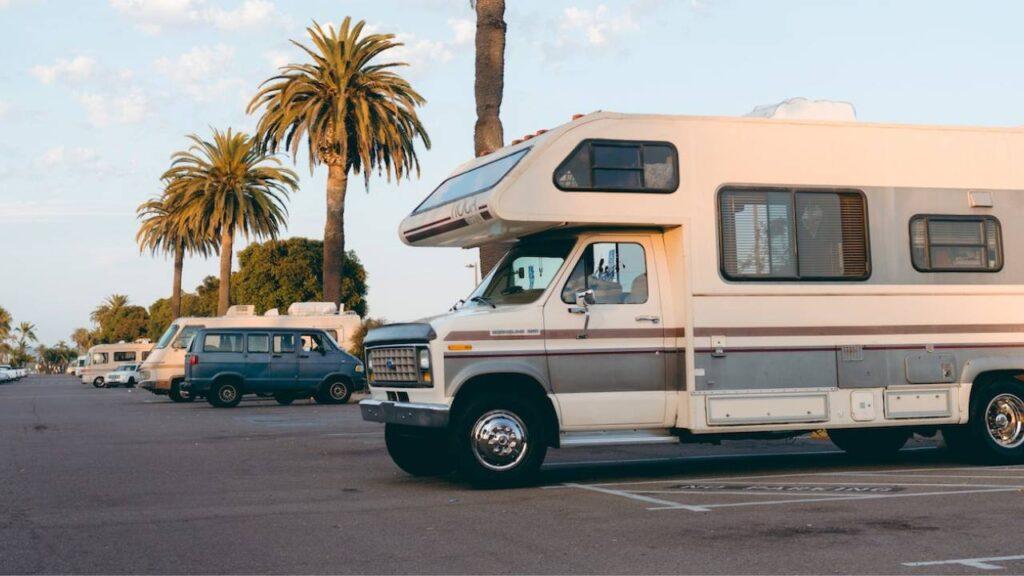
Before you venture up into the high altitudes, where the air grows thin and the scenery breathtaking, there’s an essential companion we must discuss: your RV’s propane tankless water heater. Essential for providing that hot shower at the end of a long day of exploring, these heaters face unique challenges as you climb higher. The impact of altitude on RV propane tankless water heater performance is not merely a technical concern but a pivotal aspect of ensuring your home on wheels remains cozy and functional, no matter how high you climb. Understanding how reduced oxygen levels and decreased air pressure can affect your appliance’s efficiency is crucial for any high-altitude adventurer. Furthermore, this knowledge ensures that when you retreat inside after a day of mountain trails or starlit skies, you’re met with the warmth and comfort you deserve. So, let’s dive in!
How Altitude Affects Propane Tankless Water Heaters in RVs
As you ascend into the higher altitudes with your RV, the world seems to open up—expansive views, crisp air, and the promise of solitude. However, your RV’s propane tankless water heater may not share the same enthusiasm for these elevated adventures. Understanding the impact of altitude on RV propane tankless water heaters performance is crucial, not just for the comfort of a warm shower but for the efficiency and safety of your RV systems as you explore these heights.
Before diving into the technicalities, let’s set the scene. Imagine you’re camped at a picturesque mountain site, ready to unwind. But as you turn on the shower, expecting a soothing stream of warm water, you’re met with a weak flow or, even worse, cold droplets. Why does this happen? It all boils down to the impact of altitude on RV propane tankless water heater performance.
Air Pressure and Oxygen Levels at High Altitudes
As you climb higher, the air around you becomes less dense. This decrease in air pressure means there’s less oxygen available. For your RV propane tankless water heaters, which rely on oxygen to burn propane efficiently, this can be quite problematic. The combustion process becomes less efficient, impacting the heater’s ability to warm up water quickly and effectively. This scenario is a common challenge faced by RVers, as the reduced oxygen levels make it difficult for the heater to maintain its performance, leading to issues like incomplete combustion.
Science Behind Propane Combustion
Propane needs a specific mixture of oxygen to burn cleanly and efficiently. At sea level, this balance is easily achieved, but as altitude increases, the thinner air disrupts this balance, altering the combustion dynamics. This change can lead to inefficient heating and increased propane consumption, as your heater struggles to reach the desired temperatures. Understanding this science helps in anticipating the adjustments needed to maintain an optimal performance.
Typical Symptoms of Altitude Effects on Water Heaters
The most telling signs that altitude is affecting your heater include incomplete combustion, characterized by soot production and yellow flames instead of a clean blue flame. These symptoms are more than just a nuisance; they indicate that your water heater is not operating efficiently or safely. Recognizing these signs early can prevent further complications in your RV’s heating system.
Key Altitude Thresholds for RV Propane Tankless Water Heaters
Navigating through these altitude changes isn’t just about recognizing the problems but also knowing when these issues become more pronounced and what you can do about them.
Critical Altitudes for Standard RV Models
Most RV propane tankless water heaters are designed to operate efficiently up to certain altitudes, typically around 5,000 to 8,000 feet above sea level. Beyond these thresholds, the performance decrement becomes noticeable. Knowing these limits is essential as you plan your route and decide on your camping spots. Crossing these altitude limits without proper preparation can lead to inefficient heating and potential safety risks.
Adjustments and Modifications for High Altitude
Fortunately, you’re not left to fend for yourself when you decide to explore high-altitude destinations. There are specific modifications and adjustments you can make to adapt your water heater for higher elevations. High-altitude kits are available to help your heater better manage the thin air, ensuring that your adventures in the clouds are as warm and cozy as those at lower elevations. These kits adjust the fuel and air mixture to compensate for the reduced oxygen levels, allowing for proper combustion even when the air is thin.
The journey to understanding and managing the impact of altitude on RV propane tankless water heater performance is much like any high-altitude trek—challenging yet rewarding. Whether it’s adjusting your equipment with a high-altitude kit or simply being aware of the altitude thresholds, each step you take ensures your comfort and safety as you scale new heights with your RV. So, keep these insights in mind, and let your high-altitude adventures be as boundless as the landscapes you set out to explore!
Sea Level vs. High Altitude Performance On RV Propane Tankless Water Heater
Embarking on an RV adventure to high altitudes can transform your experience, offering breathtaking views and a chance to escape the hustle and bustle of lowland life.
However, as your surroundings soar, the performance of your RV propane tankless water heaters might begin to falter. Recognizing the impact of altitude on RV propane tankless water heater performance is vital for planning and adapting your journey to ensure continuous comfort.
At sea level, your water heater operates at its peak, with ample oxygen aiding in efficient combustion. But as you ascend, the thinning air presents challenges that can affect both performance and safety.
Efficiency Differences Explained
At sea level, your propane tankless water heater enjoys optimal conditions—plentiful oxygen means efficient fuel combustion, which translates to quick and effective heating. As you climb higher, the reduced air pressure and oxygen levels diminish this efficiency dramatically. The heater must work harder, consuming more fuel and taking longer to heat water, which can disrupt your plans for a warm evening shower after a day of hiking.
Safety Considerations at Various Altitudes
Higher altitudes bring not only performance issues but also increased safety concerns. The impact of altitude on RV propane tankless water heater performance includes risks such as improper gas combustion, leading to carbon monoxide build-up if not ventilated properly. It’s crucial to employ preventive measures like ensuring adequate ventilation and regularly checking combustion quality to keep your adventure safe.
Factors to Consider When Choosing a Propane Tankless Water Heater for Your RV
Choosing the right water heater is more than just about size and capacity; it’s about understanding how your travels influence its functionality. For instance, if high-altitude RV adventures are your aim, considering a model designed to cope with the reduced oxygen levels could save you a great deal of hassle.
Navigating Altitude Changes While RVing
As you plan your route through various altitudes, preparing your RV propane tankless water heaters is as essential as mapping your stops.
Preparing Your Water Heater for Altitude Changes
Before you hit those higher elevations, a few adjustments to your water heater can make a world of difference. Familiarizing yourself with the settings that regulate air and fuel mixtures can enhance your heater’s adaptability to changing conditions. Carrying tools and knowledge for on-the-spot adjustments ensures you remain ready for whatever the altitude throws your way.
Real-Time Adjustments and Monitoring
Monitoring your water heater’s performance in real time becomes crucial as you navigate through different altitudes. Modern RV propane tankless water heaters often come equipped with sensors and diagnostic tools that can alert you to inefficiencies in real time, allowing for immediate adjustments. These tools help maintain optimal performance and safety, ensuring your high-altitude adventures are as warm as those at sea level.
Understanding and preparing for the impact of altitude on RV propane tankless water heater performance equips you to tackle the challenges that come with high-altitude RVing. By choosing the right equipment and making informed adjustments, you ensure that your mountainous retreat remains as comfortable and safe as your sea-level escapades. Thus, your journey into the clouds can be as free from worry as the landscapes are wide.
Wrapping It Up!
As we conclude our exploration into the intricacies of how altitude influences the performance of RV propane tankless water heaters, let’s take a moment to appreciate the significance of this understanding. The effect of altitude on these water heaters transcends mere technicalities—it’s a fundamental aspect that enhances the comfort and safety of your RV escapades amidst mountainous terrain. Whether you’re envisioning a tranquil retreat amidst lofty peaks or a spirited expedition across diverse landscapes, readiness for altitude fluctuations is paramount.
Armed with the appropriate knowledge and adjustments, you can ensure optimal operation of your water heater regardless of elevation. This not only promises invigorating showers on crisp mountain mornings but also contributes to the overall reliability of your RV systems. Therefore, before embarking on your ascent to majestic heights, pause to contemplate how altitude might influence your journey and make necessary preparations. In doing so, you’re not merely plotting a trip; you’re quipping with a memorable and seamless adventure in the grandeur of the outdoors.
Related FAQs
What Is The Impact Of High Altitude On RV Propane Tankless Water Heaters?
High altitude can reduce the oxygen available for combustion, affecting heater efficiency and safety.
Can I Adjust My RV Water Heater For High Altitude?
Yes, adjustments such as high-altitude kits can help maintain efficiency and safety.
How Do I Know If My RV Water Heater Is Affected By Altitude?
Symptoms like longer heating times and yellow flames indicate altitude effects.
What Altitude Starts Affecting Propane Water Heaters?
Effects can start to be noticeable at altitudes above 5,000 feet.
Are There Specific Models Of RV Water Heaters Better Suited For High Altitudes?
Yes, some models are have designs to perform better at higher altitudes.
As outdoor enthusiasts ourselves, we understand the significance of reliable gear that can withstand the elements and support you throughout your journey. We try to provide as much real life information with our guides and how tos to the readers as possible. Our honest and transparent reviews of essential outdoor gadgets and products are rooted in testing and experience. We take great satisfaction in offering unbiased evaluations, ensuring that you can make informed decisions when investing in outdoor gear. As an affiliate website, we may earn a small commission from some of the products we feature. However, rest assured that our opinions are not influenced by this, and your trust is always our top priority.



